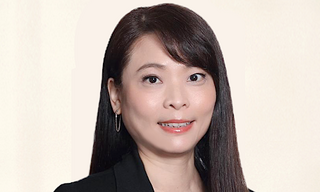Prudential plans to launch a digital health app year-end, which may help longer-living Singaporeans cope with rising healthcare costs and multi-morbidity.
Preventative healthcare is seen as key to addressing the medical demands of an ageing population and containing costs in the long term. Eight in 10 doctors and clinicians surveyed by Prudential indicate that Singapore's healthcare system must place more emphasis on disease prevention.
«Why not move from cure to prevention, why not leverage health technology to reach people and help them manage their lifestyle? We're on the verge of a digital healthcare ecosystem... basically about helping those who are healthy to stay healthy and help people move back to a healthy lifestyle, or manage conditions so they do not get worse,» said Prudential head of medical portfolio management Sidharth Kachroo, who was quoted in the «Business Times»(behind paywall).
Worries About Healthcare Costs
Almost half of the healthcare practitioners believe Singaporeans will be hard-pressed to cope with the health expenses of living to 100, a survey by Prudential has found. This is due to a greater number of them possibly managing more than one chronic disease in their old age.
The number of older adults who develop more than one chronic condition, called multi-morbidity, has been growing with more than half of Singapore's residents who are older than 60 falling into this category. 55 percent of residents (in a separate survey) said they were not ready from a health and wellness perspective to reach 100.
Singaporeans Topped In Life Expectancy
Last month, it was reported that Singaporeans topped the world in life expectancy in 2017, with an expected lifespan of 84.8 years, the longest lifespan in the world. But 10.6 of these years would be spent in poor health, according to the Burden of Disease in Singapore 1990-2017 report, by the Institute of Health Metrics and Evaluation in the United States in collaboration with Singapore's Ministry of Health (MOH).
Technology is seen as part of the preventative healthcare solution - 77 percent of respondents say greater investment in at-home technologies to support chronic disease care will be needed as the population ages.
New Funding Models Needed
Survey respondents point to better integration of care around the patient as a way to prepare for an aging population and rising multi-morbidity. Two in five healthcare practitioners believe a more integrated approach where there is synergy between primary care, hospitals, long-term care, and home care could reduce inefficiencies, hospital time and costs. Singapore's healthcare system is seen to lack coordination across various care providers and over-dependent on specialist care.
The report also highlighted the need for new funding models. Currently, the system is based on a fee-for-service model where fees are determined by the amount and types of treatment given to a patient. A value-based model, where fees are determined by the improvements in patients' health, could be a better approach to pricing healthcare.


























